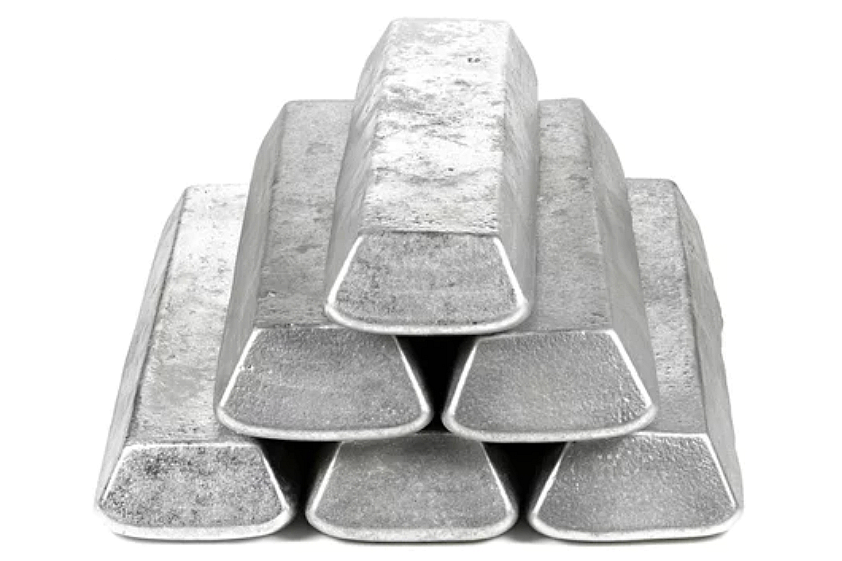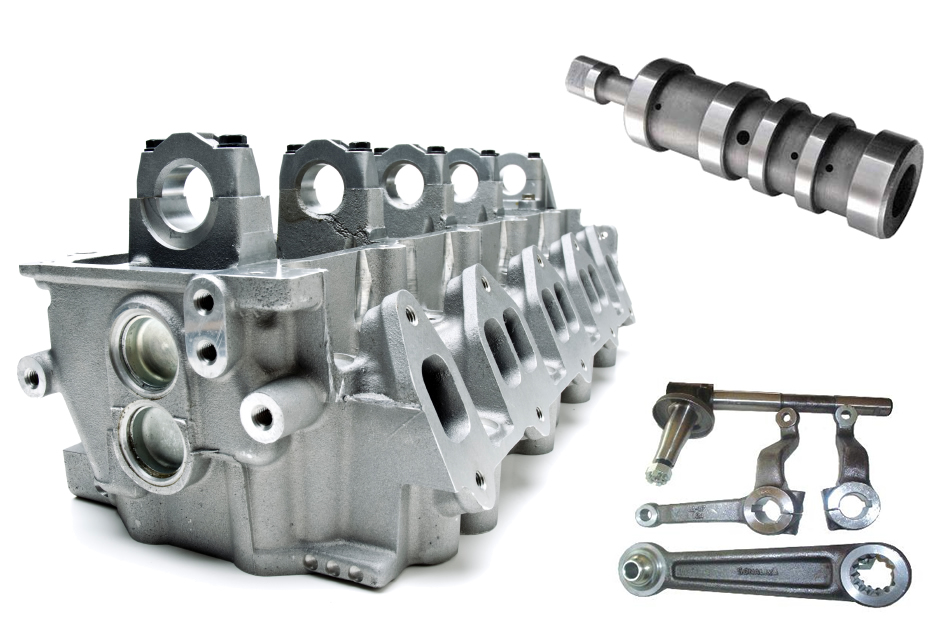Why an Aluminum Foundry is the backbone of automotive innovation
Wiki Article
The Effect of Cutting-edge Shop Services on Lasting Manufacturing Practices
Innovative factory solutions play an essential function in progressing lasting production techniques. By incorporating recycling technologies and energy-efficient processes, these services significantly lower environmental impact. Factories can recover valuable materials, thus lowering dependence on virgin resources. As automation and lean manufacturing concepts obtain traction, manufacturing effectiveness is maximized. The full extent of these improvements and their effects for the future of manufacturing stay to be explored.The Role of Advanced Recycling Technologies in Foundries
Advanced recycling modern technologies are changing the landscape of factories by improving material healing and minimizing waste. These ingenious processes allow shops to redeem useful metals and materials from scrap, minimizing dependence on virgin resources. By integrating innovative sorting, shredding, and melting strategies, factories can efficiently extract useful products from disposed of products, thus advertising a round economic situation.Moreover, these innovations support the manufacturing of top quality alloys and components, making certain that recycled products meet rigorous market standards (aluminum casting). Because of this, factories are not just enhancing their product effectiveness yet likewise reducing the ecological effect related to standard production methods
This change towards progressed recycling not just bolsters financial viability for foundries however additionally aligns with international sustainability goals. Eventually, the unification of these technologies represents a substantial progression in the pursuit for lasting manufacturing methods within the shop sector.
Energy Effectiveness: Lowering Consumption in Manufacturing Processes
Energy efficiency in making processes is important for lasting operations. Techniques such as process optimization methods, renewable resource integration, and waste heat healing play necessary duties in minimizing energy usage. By concentrating on these areas, makers can substantially reduce their environmental impact while improving efficiency.Refine Optimization Techniques
A considerable variety of making centers are significantly taking on procedure optimization strategies to enhance power performance and reduce consumption. These techniques involve refining and analyzing manufacturing operations, recognizing traffic jams, and implementing automation to streamline operations. By leveraging information analytics, suppliers can monitor energy use in real-time, enabling aggressive changes to decrease waste. Methods such as Lean Production and 6 Sigma concentrate on maximizing and removing ineffectiveness resource allotment. Additionally, advanced modern technologies like Internet of Things (IoT) sensing units provide understandings into equipment efficiency, promoting predictive maintenance that protects against power loss. Generally, these process optimization techniques not only add to lowered energy consumption but also promote a culture of continuous renovation within making settings, straightening operational exercise with sustainability objectives.Renewable Resource Combination
Lots of production centers are progressively incorporating eco-friendly power sources to boost general energy efficiency and minimize reliance on standard power grids. This adjustment consists of the adoption of solar, wind, and biomass power, which can significantly reduce functional costs and reduce carbon footprints. By using these lasting energy sources, makers not just reduce their ecological influence but likewise boost energy durability. Additionally, integrating sustainable power systems frequently entails advanced innovations such as power storage and wise grid solutions, which enhance power usage and help with real-time surveillance. This integration supports makers in achieving regulative conformity and meeting sustainability goals while promoting development in manufacturing procedures. Inevitably, renewable resource assimilation stands for a pivotal shift towards more sustainable manufacturing practices and long-term practicality.Waste Heat Recovery
Integrating sustainable power resources establishes the phase for additional innovations in power effectiveness, especially with the application of waste warm healing systems. These systems capture excess thermal energy generated throughout making procedures, which would otherwise be lost to the environment. By repurposing this warmth, shops can considerably reduce their energy consumption, reduced functional prices, and lessen their carbon footprint. The recuperated heat can be utilized for various applications, such as heating, power generation, or preheating resources. Therefore, waste warmth healing not just boosts power effectiveness however also adds to a lasting manufacturing version. Innovative shop solutions that prioritize this modern technology are paving the way for an eco responsible industrial landscape, aligning profitability with eco-friendly stewardship.Utilizing Eco-Friendly Products in Foundry Procedures
As the demand for sustainable manufacturing practices grows, shops are increasingly turning to green materials to enhance their procedures. By integrating sustainable options, such as recycled metals and bio-based binders, foundries can substantially decrease their ecological footprint. These products typically call for less power for processing and can lessen hazardous exhausts during manufacturing.Additionally, the fostering of environment-friendly products not only straightens with regulative criteria however additionally satisfies consumer choices for greener items. Shops are discovering innovative choices, such as making use of organic additives that enhance mold and mildew quality while staying safe.
The change to sustainable products cultivates a circular economic climate by advertising resource reuse and reducing waste. In addition, this adjustment can enhance the general performance of shop procedures, as eco-friendly materials commonly show superior properties, resulting in improved product performance - Aluminum Casting Company. Inevitably, the application of green products stands for a vital action towards sustainable manufacturing in the foundry industry

Advancements in Waste Administration and Reduction Techniques
The shift in the direction of environment-friendly materials in foundry operations leads the way for advancements in waste management and reduction strategies. Cutting-edge shop services are progressively embracing strategies that decrease waste generation and advertise recycling. Techniques such as closed-loop systems permit the reuse of materials, greatly lowering the quantity of waste produced throughout manufacturing procedures. Furthermore, advancements in purification and separation modern technologies allow the efficient healing of important byproducts, which can be reintegrated right into the production cycle.In addition, the application of real-time surveillance systems offers data-driven understandings into waste generation patterns, assisting in informed decision-making to enhance source usage. Shops are also checking out biowaste remedies, converting organic waste right into power or usable products, further advertising sustainability. These innovations not just add to a circular economic situation but likewise improve the total environmental performance of factory procedures, emphasizing the industry's commitment to minimizing its eco-friendly footprint.
The Effect of Automation on Lasting Production
While lots of sectors aim for sustainability, automation becomes an important variable in enhancing sustainable production practices within factories. By incorporating automated systems, foundries can accomplish better performance, decrease waste, and lower energy usage. Automated procedures permit exact control over manufacturing criteria, minimizing problems and remodel, which consequently saves sources.Automation assists in the tracking of ecological influences, making it possible for real-time changes that line up with sustainability goals. Advanced robotics and expert system can optimize material usage, leading to substantial decreases in scrap and discharges
Additionally, automated technologies advertise much safer working settings by managing harmful tasks, therefore boosting worker health while making certain conformity with environmental laws. Generally, the adoption of automation within shops not only streamlines procedures but additionally plays an essential role ahead of time sustainable production methods, adding to an extra responsible commercial landscape.
Case Researches: Effective Implementation of Lasting Shop Practices
Successful execution of lasting practices in foundries can be illustrated with numerous study that highlight innovative approaches and measurable results. One notable example is a mid-sized foundry that adopted a closed-loop water recycling system, minimizing water usage by 40% and lowering wastewater generation. Additionally, this center changed to using environment-friendly mold and mildew products, which not only improved product high quality yet also boosted worker security.One more significant instance involved a huge factory incorporating renewable power resources, such as photovoltaic panels, which balance out 30% of its energy requires. This campaign not only decreased operational prices however likewise added to a significant reduction in carbon exhausts.
Last but not least, a foundry that implemented lean production techniques reported a 25% boost in effectiveness, causing less material waste and maximized manufacturing processes. These cases jointly highlight the tangible benefits and sustainability innovations achievable via innovative shop practices.
Frequently Asked Concerns
Exactly How Do Cutting-edge Factory Providers Add To Total Sustainability Objectives?
Cutting-edge factory solutions improve general sustainability objectives by optimizing source usage, reducing waste, and improving energy effectiveness. These innovations contribute to reduce carbon footprints and promote ecologically accountable practices within the manufacturing industry, supporting broader sustainability initiatives.What Are the Economic Perks of Adopting Lasting Factory Practices?
Taking on lasting shop methods can decrease functional prices, enhance source effectiveness, and enhance competition. Additionally, these methods can bring in eco-conscious consumers aluminum casting and investors, inevitably leading to enhanced profitability and long-term economic practicality for companies.How Can Small Foundries Execute Sustainable Technologies Successfully?
Small foundries can carry out sustainable developments effectively by embracing energy-efficient modern technologies, optimizing resource use, training personnel on sustainable practices, collaborating with vendors for environment-friendly materials, and participating in continual improvement procedures to minimize waste and exhausts.What Accreditations Exist for Sustainable Shop Workflow?

Just How Do Customer Preferences Impact Lasting Manufacturing in Foundries?
Customer choices considerably influence lasting production in shops by driving demand for environment-friendly products. As customers prioritize sustainability, factories adjust their practices, incorporating greener products and innovations to satisfy market expectations and boost their competitive advantage.By repurposing this warm, factories can significantly minimize their energy intake, reduced operational expenses, and lessen their carbon footprint. Foundries are additionally checking out biowaste services, converting organic waste into energy or functional products, additionally advertising sustainability. By integrating automated systems, factories can accomplish higher performance, lower waste, and lower power usage. One more significant instance entailed a big foundry incorporating renewable power resources, such as solar panels, which balance out 30% of its energy requires. Ingenious foundry solutions enhance total sustainability goals by maximizing resource usage, lowering waste, and enhancing energy effectiveness.
Report this wiki page